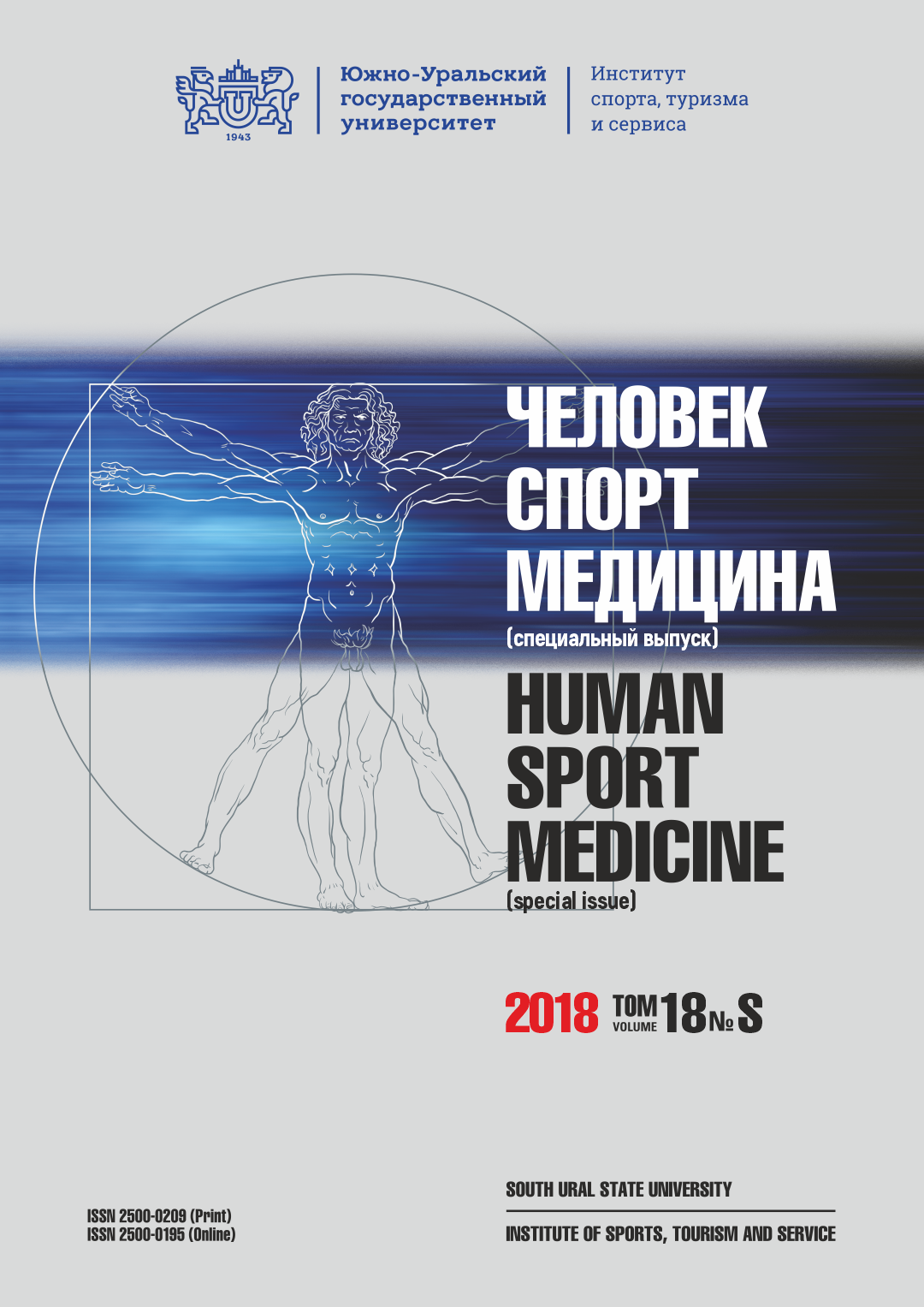PHYSIOLOGICAL CHARACTERISTICS AND RESERVES OF THE CARDIOVASCULAR SYSTEM IN PROFESSIONAL FEMALE ATHLETES DURING THE PRE-INVOLUTION PERIOD
Abstract
Аim. The article deals with the analysis of physiological characteristics and reserves of the cardiovascular system in professional female athletes during the pre-involution (37–45 years) and reproductive (16–26 years) periods. Materials and methods. We examined professional female athletes (long distance running and swimming), who do not take oral contraceptive pills and have an average duration of their menstrual cycle of 28–30 days. All the athletes examined are either in the pre-involution (37–45 years, n = 18) or in the reproductive (16–26 years, n = 32) periods. We performed the following tests: the enzyme-linked immunosorbent assay of gonadotropins and sex steroids, an immunochromatographic in-vitro assay for the detection of ovulation, heart rate variability analysis, the analysis of central hemodynamics rheograms, the cycle ergometer test with gradually increasing load, statistical data processing. Results. We justified physiologically the functional ability of the cardiovascular system in the women of the pre-involution period to adapt to intense physical loads in professional sports. We established that during the pre-involution period there is a relative decrease in the activity of the central and autonomous mechanisms of heart rate regulation. The formation of the most favorable period of autonomous regulation occurs from 20 to 22 day, which can be considered as a regulatory reserve. At the same time, the reserves of cardiac and vascular chains in achieving a relatively high functional level of the cardiovascular system are decreased. The most pronounced tension is registered in a vascular chain. Conclusion. We established the physiological characteristics of reserve and compensatory effects on the regulatory, cardiac, and hemodynamic levels of the cardiovascular system in professional female athletes aged 37-45 in the second half of their anovulatory cycle. This should be taken into account in dosing high intensity training loads.
Copyright (c) 2019 Human. Sport. Medicine

This work is licensed under a Creative Commons Attribution-NonCommercial-NoDerivatives 4.0 International License.















